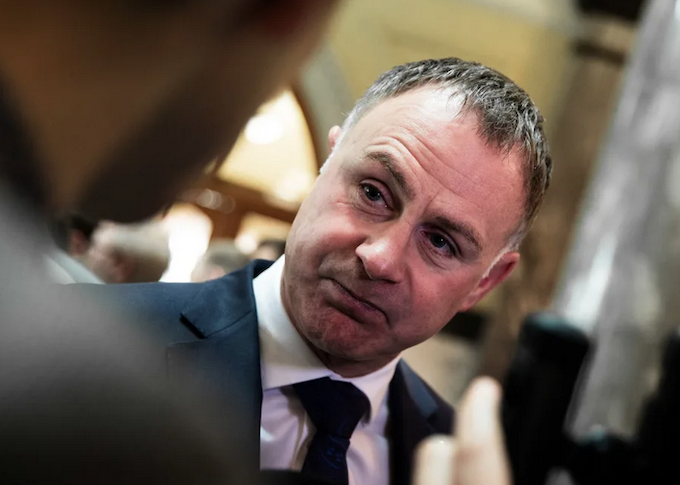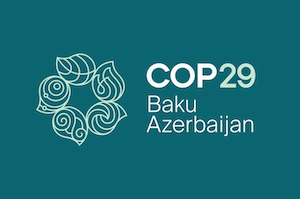
By Eloise Gibson, RNZ climate change correspondent
New Zealand’s Climate Change Minister Simon Watts is going to the global climate summit in Baku, Azerbaijan next week, where he will be co-leading talks on international carbon trading.
But the government has been unable to commit to using the trading mechanism he is leading high-level discussions about, and critics say he is also vulnerable over New Zealand’s backsliding on fossil fuels.
New Zealand has consistently pushed for two things in international climate diplomacy — one is ending government subsidies for fossil fuels globally, and the other is allowing carbon trading across international borders, so one country can pay for, say, switching off a coal plant in another country.
- READ MORE: COP29: UN chief warns world is in ‘final countdown’ to limit global warming to 1.5C
- Trump win, 1.5C warming breach weigh on UN climate ‘finance COP’
- COP29: Pacific countries cannot be conveniently pigeonholed
- COP29 Azerbaijan: What’s at stake at the 2024 global climate summit?
- Rising Tide climate crisis ‘Protestival’ to go ahead despite court ruling
- Other COP29 climate reports

Nailing down the rules for making sure these carbon savings are real will be an area of focus for leaders at the COP29 summit, starting on 11 November.
But as Watts gets ready to attend the talks, critics say his government is vulnerable to accusations of hypocrisy on both fronts.
In a bid to bring back fossil fuel exploration, the government wants to lower financial security requirements on oil and gas companies requiring them to set aside money for the costs of decommissioning and cleaning up spills.
The coalition says the current requirements — brought in after taxpayers had to pay to deal with a defunct oil field — are so onerous they are stopping companies wanting to look for fossil fuels.
Billion dollar clean-ups
At a recent hearing, Parliament’s independent environment watchdog warned going too far at relaxing requirements could leave taxpayers footing bills of billions of dollars if a clean-up is needed.
The commission’s Geoff Simmons spoke on behalf of Commissioner Simon Upton.
“The commissioner was really clear in his submission that he wants to place on record that he doesn’t think it is appropriate for any government, present or future, to offer any subsidies, implicit or explicit, to underwrite the cost of exploration.”
The watchdog said that would tilt the playing field away from renewable energy in favour of fossil fuels.
Energy Minister Shane Jones says the government’s Bill doesn’t lower the liability for fixing damage or decommissioning oil and gas wells, which remain the responsibility of the fossil fuel company in perpetuity.
But climate activist Adam Currie says that only works if the company stays in business.
“The watering down of those key financial safeguards increases the risk of the taxpaper having to yet again pay to decommission a failed oil field.
“Simon Watts is about to go to COP and urge other countries to end fossil fuel subsidies while at home they are handing an open cheque to fossil fuels .. This is a classic case of do as a say, not as I do.”
Getting flack not feared
Watts says he does not fear getting flack for the fossil-friendlier changes when he is in Baku, citing the government’s goal of doubling renewable energy.
“No I’m not worried about flak, New Zealand is transitioning away from fossil fuels . . . gas [from fossil fields] is going to need to be a means by which we need to transition.”
Nor does he see an issue with the fact he is jointly leading negotiations on a trading mechanism his own government seems unable to commit to using.
Watts is leading talks to nail down rules on international carbon trading with Singaporean Environment Minister Grace Fu. Her country has struck a deal to invest in carbon savings in Rwanda.
New Zealand also needs international help to meet its 2030 target, but the coalition government has not let officials pursue any deals. NZ First refuses to say if it would back this.
Watts says his leadership role is independent of domestic politics and ministers around the world are keen to nail down the rules, as is the Azerbaijan presidency.
“Our primary focus is to ensure that we get an outcome form those negotiators, our domestic considerations are not relevant.”
Paris target discussions
He said discussions on meeting New Zealand’s Paris target were still underway.
His next challenge at home is getting Cabinet agreement on how much to promise to cut emissions from 2030-2035, the second commitment period under the Paris Agreement.
Countries are being urged to hustle, with the United Nations saying current pledges have the planet on track for what it calls a “catastrophic” 2.5 to 2.9 degrees of heating.
A new pledge is due for 2030-2035 in February.
A major goal for host Azerbaijan is making progress on a deal for climate finance.
Currently OECD countries committed to pay $100 billion a year in finance to poorer countries to adapt to and prevent the impacts of climate change.
Not all the money has been paid as grants, with a large proportion given as loans.
Countries are looking to agree on a replacement for the finance mechanism when it runs out in 2025.
Watts said New Zealand would be among the nations arguing for the liability to pay to be shared more widely than the traditional list of OECD nations, bringing in other countries that can also afford to contribute.
Oil states such as UAE have already promised specific funding despite not being part of the original climate finance deal.
This article is republished under a community partnership agreement with RNZ.











































